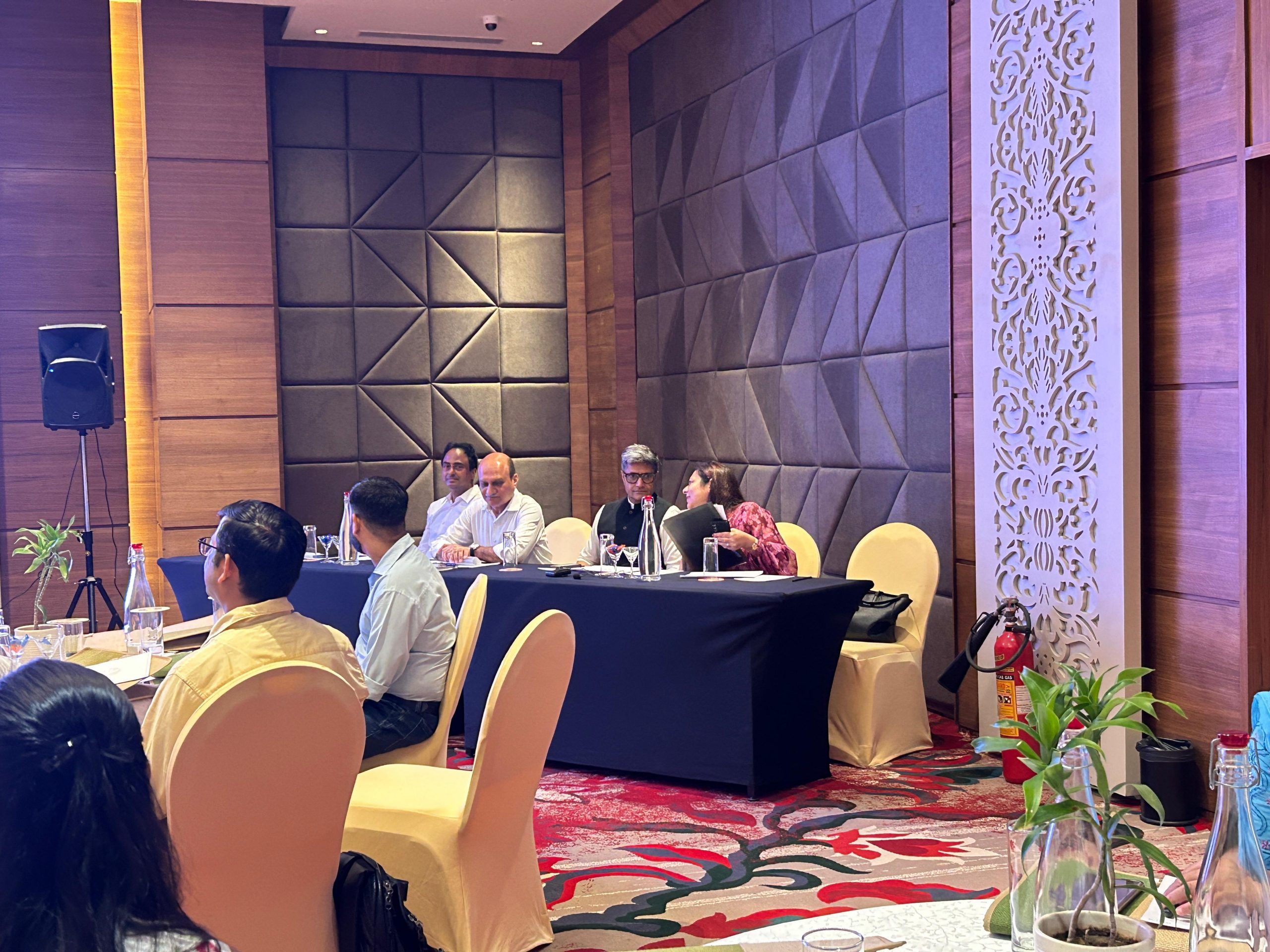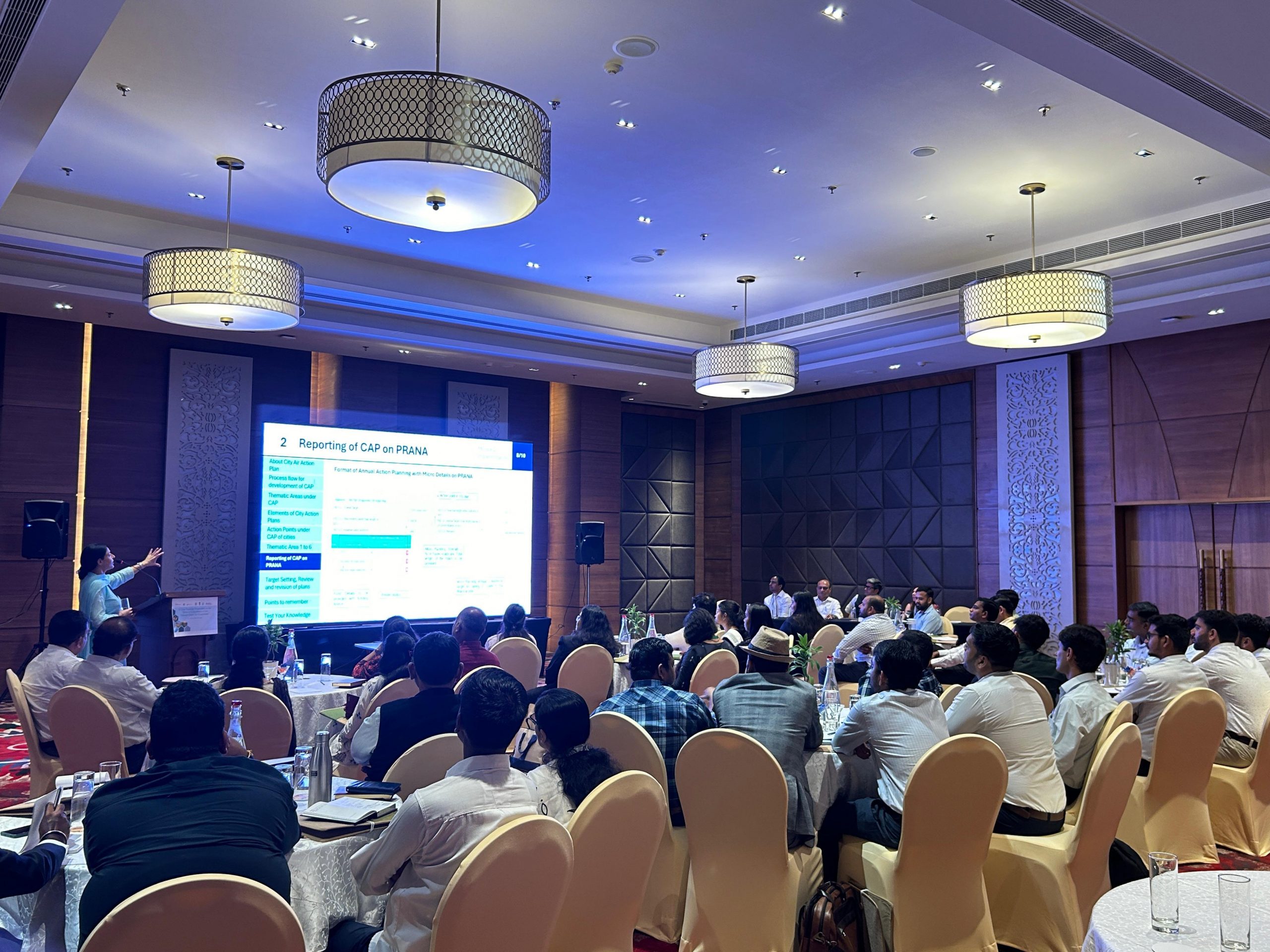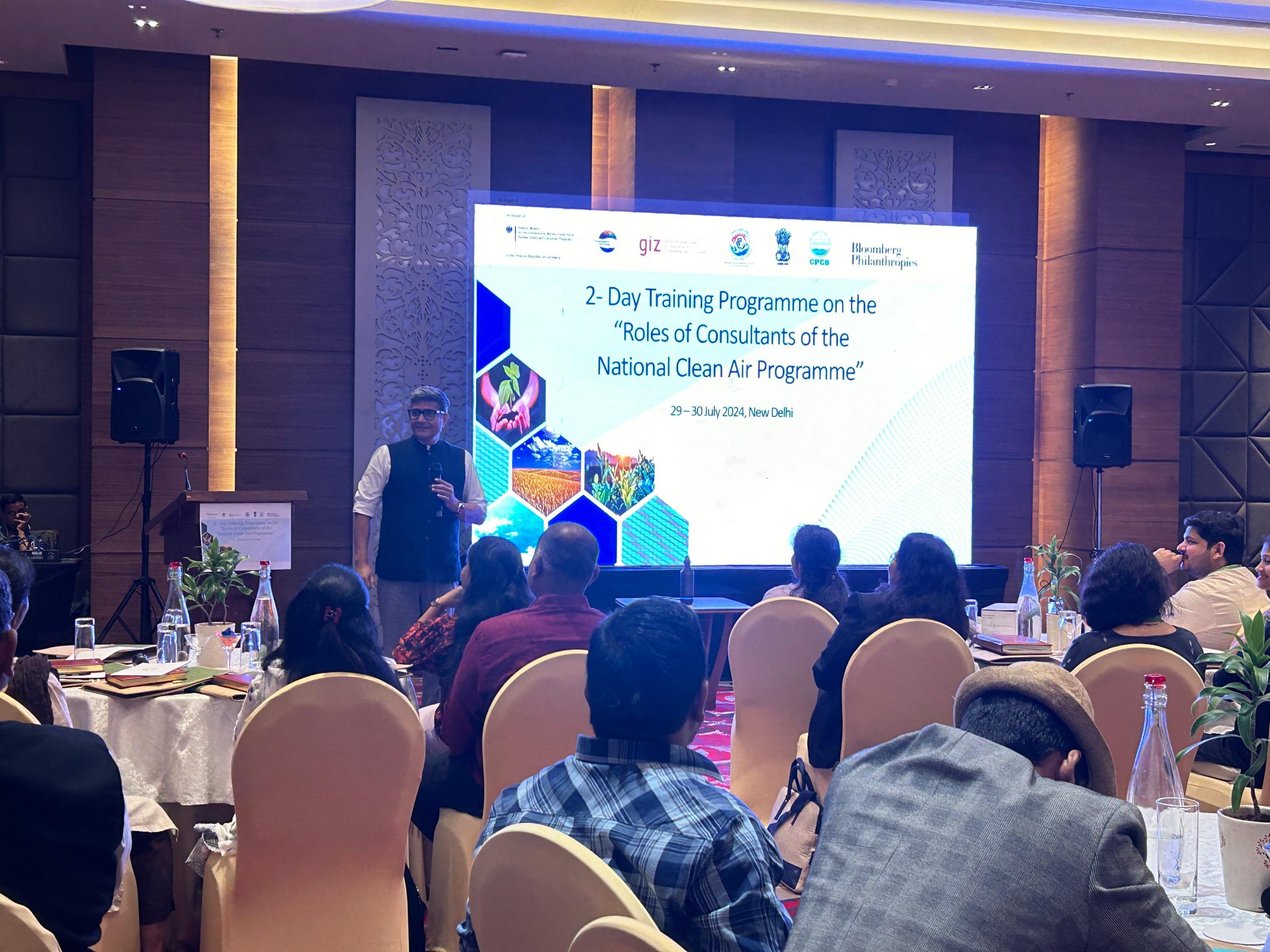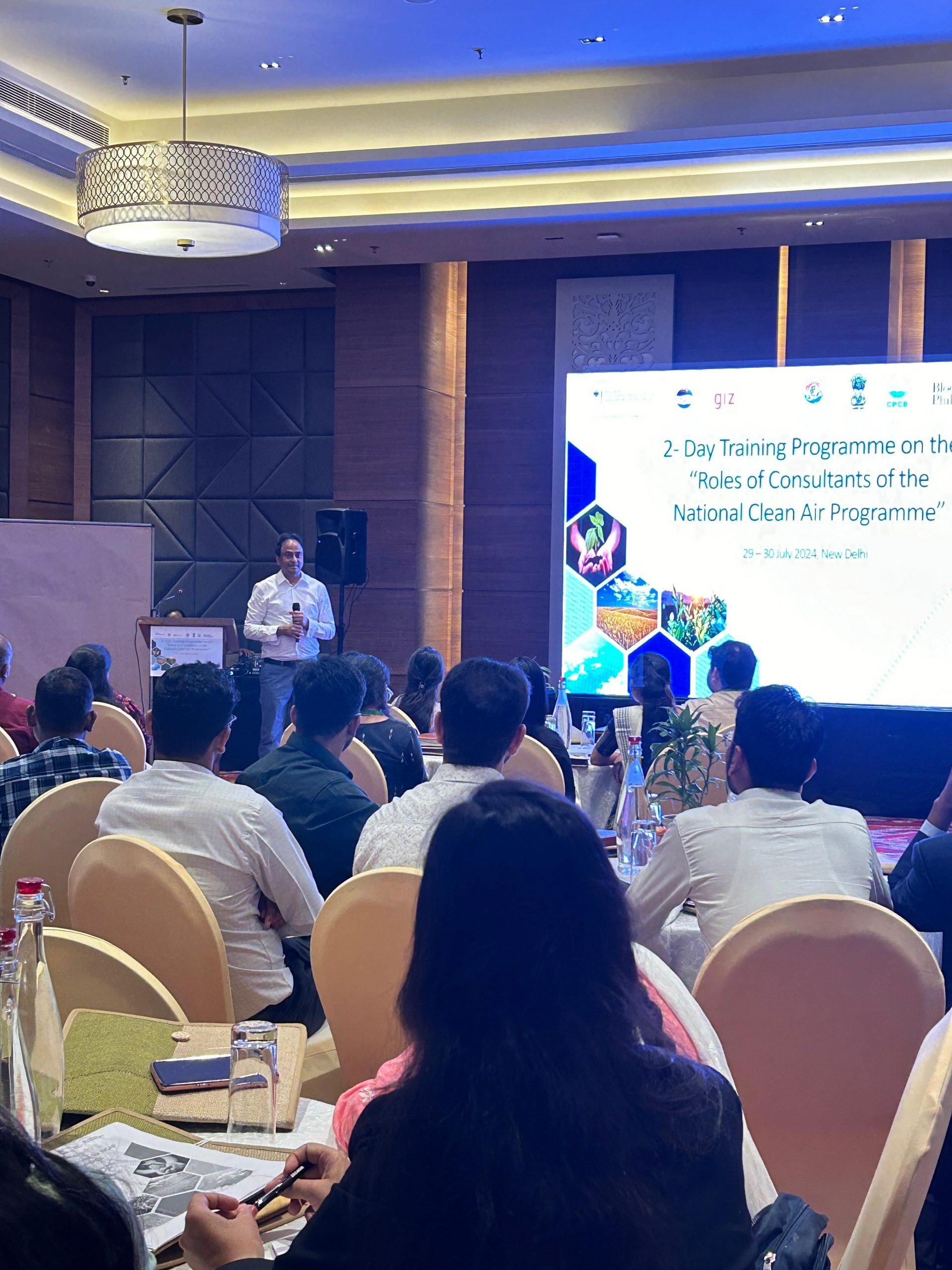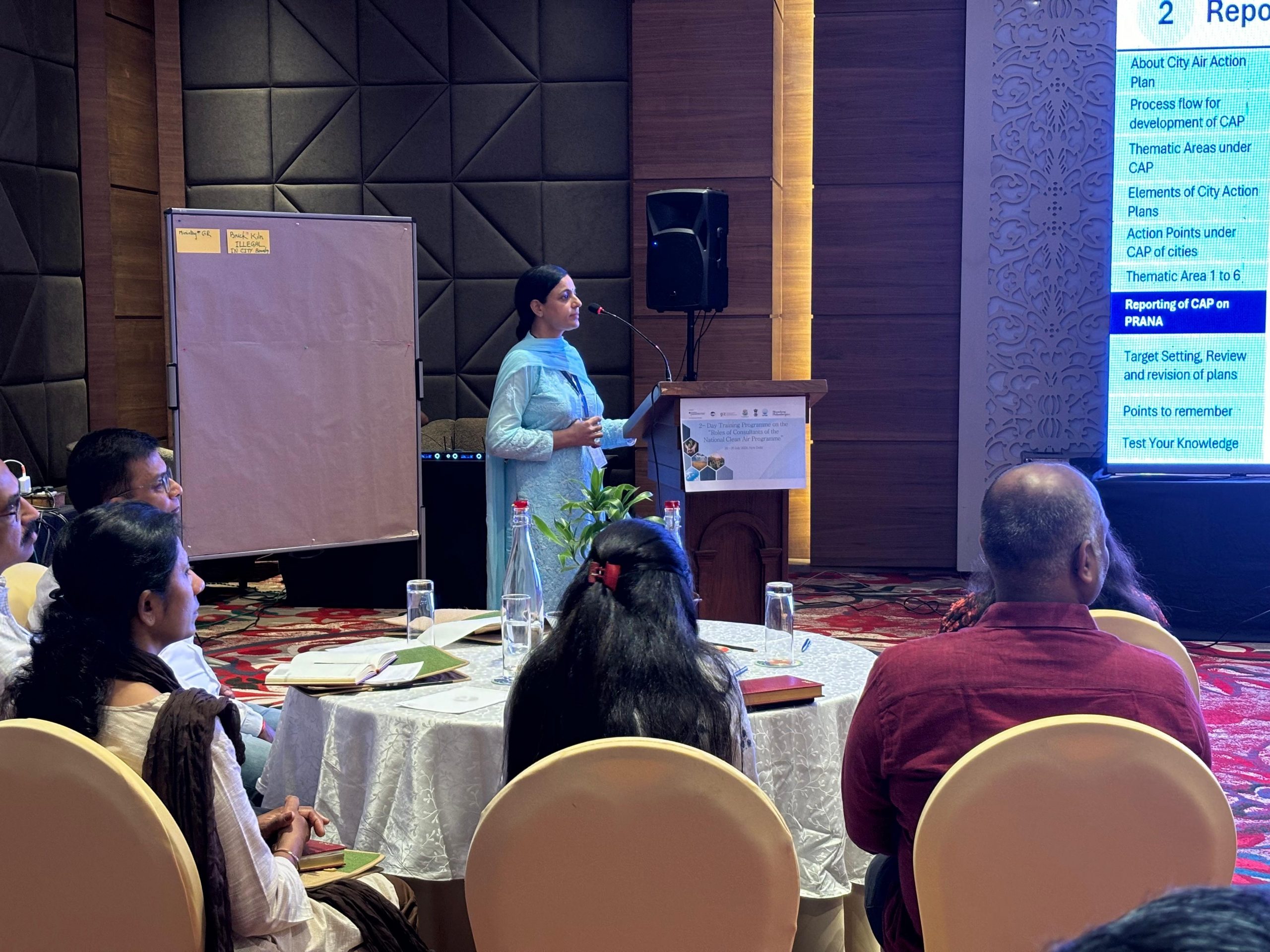Training Programme on the "Roles of Consultants of the National Clean Air Programme"

A comprehensive two-day training programme on the “Roles of Consultants of the National Clean Air Programme (NCAP)” was held on July 29-30,2024 in New Delhi. Organized by GIZ and the International Forum for Environment Sustainability and Technology (iFOREST) and funded by Bloomberg Philanthropies. The event aimed to deepen the understanding of consultants’ roles and responsibilities within the NCAP framework.
The training programme was attended by 39 consultants from 13 states, 62 cities, and 8 CPCB consultants. The programme provided a unique platform for these professionals to engage, learn, and share their experiences.
Throughout the training, attendees had the opportunity to gain insights into their roles and responsibilities, enhancing their ability to contribute effectively to the NCAP’s goals. A highlight of the event was the interaction with esteemed guests such as Mr. Naresh Pal Gangwar,
Additional Secretary, MoEFCC; Dr. Prashant Gargava, Director of NCAP, MoEFCC; and Mr. N. Subrahmanyam, Additional Director, MoEFCC. These interactions allowed participants to gain valuable perspectives from leading experts in the field and give feedback and report on ground challenges faced by them to implement the programme.
The session began with a welcome note from Mr. Raghu Babu Nukala, Programme Director at GIZ, who briefed the participants on the training programme deliverables. This was followed by Mr. Chandra Bhushan, CEO of iFOREST, providing an overview of the training programme and emphasizing the importance of the consultants’ responsibilities at the city level in reducing air pollution. Ms. Pooja Tewary from Bloomberg spoke about the significance of training programme.
The training programme included various group exercises and interactive sessions, making the entire event engaging and participatory. The training programme served not only as a platform to brief the consultants on their roles and responsibilities but also provided an opportunity for them to discuss the issues and on-ground challenges they face in their work. The feedback from these discussions was taken into account by the concerned authorities to provide them with support to implement the NCAP effectively.
Overall, the training programme was a significant step forward in strengthening the capacity of NCAP consultants, equipping them with the knowledge and skills needed to drive impactful air quality improvements across the country and also the training programme received high praise from the participants.





